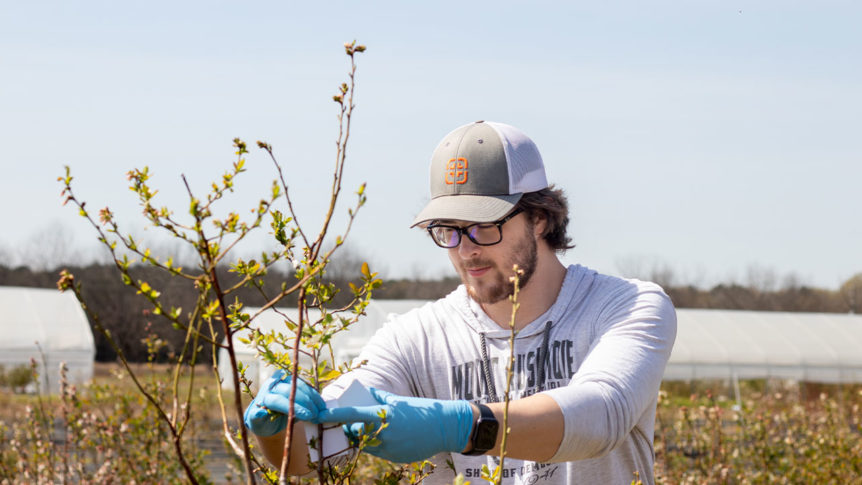
By Clint Thompson
Editor’s Note: This is the third article in a series featuring land-grant universities and plans to prepare for technological advancements.
Auburn University and its College of Agriculture recognize the value of artificial intelligence (AI) and its role in helping farmers be more efficient and sustainable in their crop production. This was highlighted during the university’s AI Symposium held earlier this year. Simer Virk, an associate professor and Extension specialist of machine systems engineering, discussed the symposium’s focus and how AI is impacting research plans at Auburn.
“Auburn has an AI Center that’s not just for ag, but there’s a lot of expertise in that area. What the College of Agriculture is trying to do is pair those scientists with our ag specialists who work with specialty crops or even those like me who work in general agriculture,” Virk said. “We are not experts of AI or machine learning, but we know agriculture well. They are the AI experts. They’re pairing us with the AI experts and actively looking for grants. The goal is to bring all of these people together on campus to work toward some practical solutions.”
Shift to Specialty Crops
Virk emphasized that AI’s focus has transitioned over the years. It started with basic concepts like global positioning system and auto-steer technology and now focuses on more in-depth ideas like sprayer efficiency, which directly impacts specialty crop production.
“Earlier, we had a lot of technology on the row crop side, and it had not really translated into specialty crops. We’re seeing the opposite effect now with technology like laser weeders, which are more suitable for vegetable production than row crops,” Virk said. “We are seeing more and more technology being integrated into specialty crop applications. Laser weeders like the John Deere See & Spray, where you only apply where you see the weed, that’s a way growers can save chemicals and save costs. Those applications are across every crop.”
BATM Major
Auburn’s AI focus isn’t just related to research. One of its most recent academic achievements was the addition of the biological and agricultural technology management (BATM) major. According to Oladiran Fasina, professor and head of the Department of Biosystems Engineering in the College of Agriculture, the program’s launch in 2019 addressed the “growing use of technology and automation in all areas of society.”
More than 30 students are currently enrolled in the BATM program, with more than 20 having already secured jobs with companies like Bonnie Plants, Archer Daniels Midland and Metrolina Greenhouses.
The global population is expected to surpass 9 billion in less than 20 years. Concerns related to how farmers will clothe and feed a growing population will continue to grow. That speaks to the importance of embracing AI and not avoiding it.
“AI is coming into ag at such a fast pace that we need to be actively working on some of these practical aspects of it,” Virk said. “People who don’t adopt it or realize it’s going to be a part of ag in the next three to five years, they might get left behind.”










